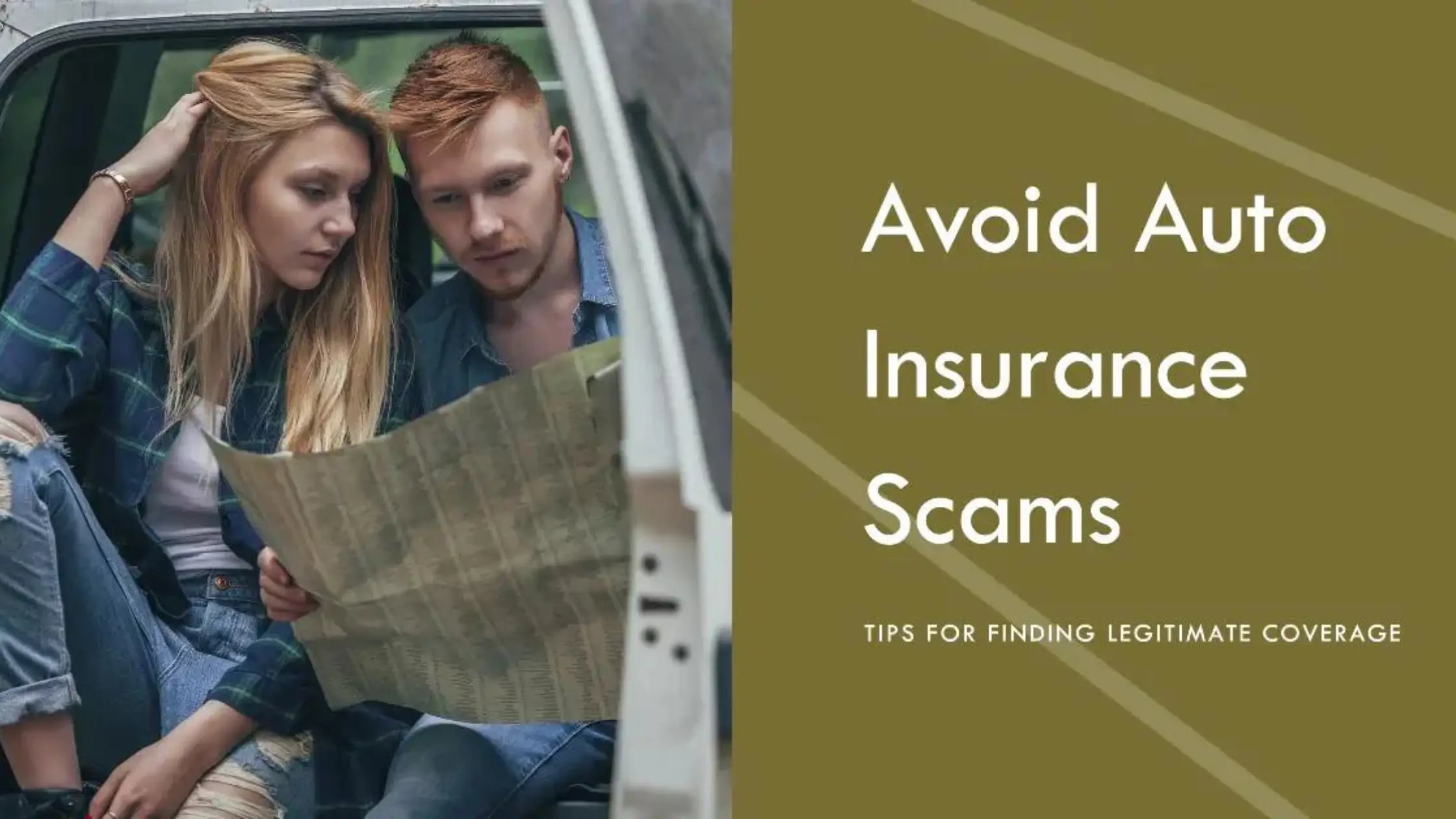Buying auto insurance can be a daunting task, especially if you’re not familiar with how the process works. Unfortunately, there are many unscrupulous companies and agents out there looking to take advantage of uninformed consumers. Auto insurance scams are more common than you might think. Here’s what you need to know to steer clear of scams and find reliable, legitimate auto insurance coverage.
Recognize common auto insurance scams
The first step is learning to recognize the most common auto insurance scams so you can avoid them. Here are some of the top scams to watch out for:
Fake discount offers: Shady agents will promise unrealistic discounts like 50% off your premiums or absurdly low rates if you sign up right away. Reputable insurers do not engage in this tactic.
Phony health insurance: Some agents try to pass off auto insurance as full health insurance. Don’t fall for this – make sure you know exactly what coverage you’re buying.
Non-existent companies: Scammers create convincing fake insurance company names, websites and documents. Verify licensing before purchasing a policy.
Rebating: Illegal in most states, rebating involves an agent paying part of your premiums for you in order to get your business. This inflates rates for everyone else.
Rate evasion: Lying about your driving record, vehicle usage, address, or other factors to obtain lower premiums is fraud. This can invalidate your policy.
Fee churning: Unethical agents charge unnecessary fees or push you to change policies frequently to generate commissions.
Watch for these common techniques used by scammers: high-pressure sales tactics insisting you sign today, resistance to send documents for review, requests for payment in cash or money order, contacting you unexpectedly versus you seeking them out. Stay alert so you don’t get tricked into a scam.
Verify licensure and certification
One critical way to avoid scams is to always verify that both the agent and insurance company are fully licensed and certified in your state. You can check with your state insurance department to validate licensure. Make sure the agent has no complaints against their license. Also confirm the insurer has proper certification and the financial strength to pay claims.
Beware bargain shopping online
Searching for the cheapest auto insurance rates online can lead you to fake companies or ads placed by scammers. Use quote comparison sites wisely and be wary of deals that seem too good to be true. Avoid search ads as these can link to scams. Go directly to insurer websites and get quotes.
Review policy thoroughly
Never sign anything or provide payment until you have carefully reviewed the entire auto insurance policy. Make sure it’s with a legitimate, licensed company. Review the coverages, limits, exclusions, deductibles and all terms. Report any discrepancies immediately and clear them up before signing. Don’t let an agent rush you through this critical step.
Understand minimum requirements
Know your state’s minimum auto insurance requirements. Most states require at least liability coverage. If a super cheap policy is lacking critical coverages, it may be a scam designed to rip you off. Make sure any policy meets your state’s minimums. Also consider purchasing more than the minimum recommended or required policy limits.
Ask questions
Don’t be afraid to ask agents plenty of questions. Get clear, thorough answers in writing. Ask about the company’s financial strength, complaint ratios, coverages, discounts, fees, endorsements, exclusions, claims process, and anything else you want to know. If an agent seems evasive or doesn’t answer fully, move on.
Research insurers
Look up reviews, ratings and online complaints regarding any insurer you are considering. Reputable insurers like State Farm, Allstate, GEICO and Progressive have been in business for decades and have generally positive reputations. Be cautious with insurers you’re unfamiliar with.
Compare multiple quotes
Get quotes from at least 3-5 different auto insurers for comparison. Look at the quote side-by-side to compare coverages, limits and costs. Don’t decide solely based on price – make sure you’re comfortable with the insurer. Quotes should be free with no obligation to buy.
Consider an independent agent
While you can buy directly from insurers, using an independent insurance agent who works with multiple companies often provides you more choices. Independent agents can help you review and select the best policy options. Make sure any agent is properly licensed.
Protect your personal information
Guard your personal and financial information carefully when shopping for insurance. Never give out driver’s license, social security or bank account numbers unless you initiate the contact and are applying for coverage. Avoid online quote forms requesting this data. Scammers phish for this info.
Trust your instincts
If an auto insurance deal seems questionable or too good to be true, trust your instincts. Politely back out and keep shopping around. Rely on reputable insurers and agents recommended by friends or consumer groups. Don’t let a scammer rush or pressure you into something.
Final tips
To recap, here are key tips for avoiding auto insurance scams:
Verify licensure and certification of insurers and agents
Research companies thoroughly and read reviews
Watch for common scam techniques like unrealistic discounts
Review policies meticulously before signing anything
Never pay in cash or give sensitive personal information
Compare quotes from multiple legit insurers
Ask plenty of questions and get written responses
Don’t fall for high-pressure sales tactics
Trust your instincts – if it seems fishy, move on
Finding reliable auto insurance with a reputable company will give you peace of mind. Following these guidelines can help you steer clear of scams and get great legitimate coverage for your vehicle. Protect yourself by staying informed and doing thorough research before purchasing an auto insurance policy.
FAQs
Q1: How can I identify auto insurance scams?
To identify auto insurance scams, look out for red flags such as unsolicited offers, unusually low premiums, or requests for upfront payments. Always verify the legitimacy of the insurance provider and check for online reviews and ratings.
Q2: What should I do if I suspect I’m being targeted by an auto insurance scam?
If you suspect you’re being targeted by an auto insurance scam, cease all communication with the suspicious party. Report the incident to your local authorities and your state’s insurance regulatory body. Additionally, contact your current insurance provider to seek guidance and ensure your coverage is intact.
Q3: How can I find legitimate auto insurance coverage?
To find legitimate auto insurance coverage, start by researching reputable insurance companies with a strong financial track record. Obtain multiple quotes to balance prices and coverage choice. Check for reviews and ask for recommendations from trusted sources. Verify the insurer’s license with your state’s insurance department.




